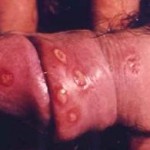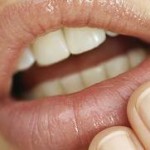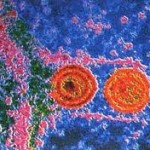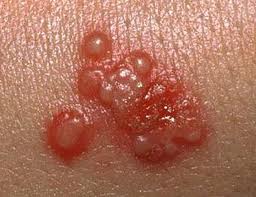Genital herpes disease is a very common sexually transmitted disease these days that is caused by a the herpes simplex virus (HSV). This disease cannot be cured anymore. Once you have it, you have it for life. You can carry and spread it all over without even having the signs and symptoms. It is highly contagious because of lack of education, drug use, and promiscuity.
There are two herpes viruses that cause genital herpes disease—HSV-1 (fever blisters transmitted through the simple act of kissing) and HSV-2 (causes most genital herpes diseases). Genital herpes disease is usually spread through common skin against skin contact and oral sex. People with genital herpes disease are very capable of spreading what they have even if they no longer manifest the signs and symptoms. Here are some of the known facts about genital herpes disease that you just might be interested in:
1. Signs and symptoms
 Signs and symptoms of genital herpes disease appear within 3-7 days of actual infection. The blisters are usually in clusters and eventually break open to become ulcerations. They are usually painful and tender. Â In males, the lesions are located on or around the penis. In females, the lesions can be found outside of the vaginal area but are usually inside of it and this causes a distinct vaginal discharge and a high level of discomfort. The lesions may also appear in the anal area as well.
Signs and symptoms of genital herpes disease appear within 3-7 days of actual infection. The blisters are usually in clusters and eventually break open to become ulcerations. They are usually painful and tender. Â In males, the lesions are located on or around the penis. In females, the lesions can be found outside of the vaginal area but are usually inside of it and this causes a distinct vaginal discharge and a high level of discomfort. The lesions may also appear in the anal area as well.
2. First outbreak
 When you get infected by genital herpes disease for the first time, the signs and symptoms usually last 2-4 weeks, which is longer than the proceeding outbreaks of the disease. You will experience pain upon urination, moderate to severe headaches, muscle pain, fever, swollen lymph nodes (groin area).
When you get infected by genital herpes disease for the first time, the signs and symptoms usually last 2-4 weeks, which is longer than the proceeding outbreaks of the disease. You will experience pain upon urination, moderate to severe headaches, muscle pain, fever, swollen lymph nodes (groin area).
3. Later outbreak
 When you get a second bout of the genital herpes disease, you will have much muted symptoms already. Tingling sensation will be experiences first before the blisters appear. This is because the nerves get inflamed and irritated first and then this reaches the skin. Even if the blisters have not appeared yet, this is already a very contagious stage of the disease.
When you get a second bout of the genital herpes disease, you will have much muted symptoms already. Tingling sensation will be experiences first before the blisters appear. This is because the nerves get inflamed and irritated first and then this reaches the skin. Even if the blisters have not appeared yet, this is already a very contagious stage of the disease.
4. Diagnosis
 To properly diagnose that you indeed have genital herpes disease, your doctor will get a culture of the blisters that you have. Then this sample will undergo polymerase chain reaction test to know the genetic composition of the virus that you have. Blood tests may also be done to know how your immune system reacts to the virus.
To properly diagnose that you indeed have genital herpes disease, your doctor will get a culture of the blisters that you have. Then this sample will undergo polymerase chain reaction test to know the genetic composition of the virus that you have. Blood tests may also be done to know how your immune system reacts to the virus.
5. Treatments
 There are known home remedies for genital herpes disease. Here, it is recommended that you always wear loose comfortable cotton clothes, do not use perfumed body products, douches, or deodorants, stay away from sunlight or extreme heat, use cool cloth against the affected area, and take pain relievers. As medical treatment for genital herpes disease, your doctor will prescribe antivirals for you to take for seven to ten days religiously. Some of the prescribed antivirals are Valtrex (valacyclovir), Famvir (famciclovir), and Zovirax (acyclovir)
There are known home remedies for genital herpes disease. Here, it is recommended that you always wear loose comfortable cotton clothes, do not use perfumed body products, douches, or deodorants, stay away from sunlight or extreme heat, use cool cloth against the affected area, and take pain relievers. As medical treatment for genital herpes disease, your doctor will prescribe antivirals for you to take for seven to ten days religiously. Some of the prescribed antivirals are Valtrex (valacyclovir), Famvir (famciclovir), and Zovirax (acyclovir)
6. Prevention
 To prevent yourself from contracting genital herpes disease, you must always practice protected or safe sex. You should have the habit of physically protecting your body from possible genital herpes disease infection by using condoms. Contraceptive pills do not protect you from actual skin-to-skin contact. You should still use condoms even if you are on the pill. If you are about to enter a new sexual relationship, then you should talk openly with your partner about genital herpes disease and other sexually transmitted infections as well. You should be responsible enough to abstain from sexual activities if you are presently undergoing treatment for any STI or sexually transmitted infection. Do your best to maintain a monogamous relationship to make sure that you don’t contract it through several sexual partners. If your sexual partner has oral blisters or cold sores. Make sure that you tell your doctor if you’re pregnant when you have genital herpes disease. The baby would most probably get the disease as well. Acyclovir is usually taken by the infected pregnant woman when pregnancy reaches its last for weeks. If you are going to handle a newborn and it just so happens that you have genital herpes disease, make sure that you wash your hands thoroughly first.
To prevent yourself from contracting genital herpes disease, you must always practice protected or safe sex. You should have the habit of physically protecting your body from possible genital herpes disease infection by using condoms. Contraceptive pills do not protect you from actual skin-to-skin contact. You should still use condoms even if you are on the pill. If you are about to enter a new sexual relationship, then you should talk openly with your partner about genital herpes disease and other sexually transmitted infections as well. You should be responsible enough to abstain from sexual activities if you are presently undergoing treatment for any STI or sexually transmitted infection. Do your best to maintain a monogamous relationship to make sure that you don’t contract it through several sexual partners. If your sexual partner has oral blisters or cold sores. Make sure that you tell your doctor if you’re pregnant when you have genital herpes disease. The baby would most probably get the disease as well. Acyclovir is usually taken by the infected pregnant woman when pregnancy reaches its last for weeks. If you are going to handle a newborn and it just so happens that you have genital herpes disease, make sure that you wash your hands thoroughly first.
At present, there are still no known preventive vaccines against genital herpes disease. The best thing that you could do is to be careful enough to prevent infection. You should immediately consult your doctor when you suspect that you are already infected so that you could get proper diagnosis and treatment.
